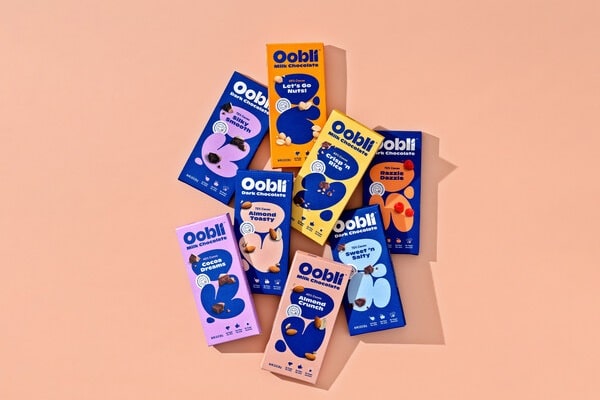You’ve undoubtedly heard the saying, “An apple a day keeps the doctor away.” But did you know the same can be said about avocados? Read on to discover the many benefits of avocado for heart Read More The post...
You’ve undoubtedly heard the saying, “An apple a day keeps the doctor away.” But did you know the same can be said about avocados?
Read on to discover the many benefits of avocado for heart health–plus six other surprising reasons to enjoy these nutrient-rich fruits daily.
Why eat avocados for heart health?
Avocados are excellent for heart health in several ways:
They’re packed with monounsaturated fatty acids (MUFAs), which have been proven to help lower “bad” cholesterol and reduce your risk of cardiovascular disease. They’re rich in potassium, which helps regulate blood pressure. They’re a great source of fiber, which supports healthy weight maintenance and balanced blood sugar levels. These are two major risk factors associated with heart disease as well as diabetes. Fiber also helps increase “good” cholesterol and manage “bad” cholesterol. They’re loaded with antioxidants and vitamins like E and K, which combat inflammation–another known risk factor for heart disease.In fact, a study in the Journal of the American Heart Association found that having at least two servings of avocado a week can lower your risk of heart disease by as much as 21%.
Avocados manage “bad” cholesterol
One of the most important links between avocados and cardiovascular disease is the fruit’s beneficial effect on cholesterol. An exciting new study from Penn State suggests that eating an avocado a day may be the secret to keeping “bad “cholesterol in check.
Their research linked daily avocado consumption to reduced levels of two types of harmful cholesterol: oxidized low-density lipoprotein (LDL) and small, dense LDL particles–especially in those who are overweight or obese. Small, dense LDL particles, in particular, are a major contributor to arterial plaque formation (atherosclerosis).
The study also found that avocados reduce the oxidation of LDL particles–a process similar to how a cut apple brown–which promotes inflammation and leads to atherosclerosis. This is another major factor in the development of conditions like heart disease.
Participants in the study started with a “baseline” diet that mimicked an average American diet, which is high in saturated fats and processed foods. They were then placed on either a diet that was low-fat, moderately high in fat, or moderately high in fat with one avocado per day.
Interestingly, the avocado diet led to lower oxidized LDL levels and increased lutein (a powerful antioxidant) in just five weeks. Participants on the moderate-fat diet without avocados did not experience this positive change. This suggests that avocados have unique health benefits beyond their MUFA content.
“Nutrition research on avocados is a relatively new area of study, so I think we’re at the tip of the iceberg for learning about their health benefits,” Penn’s Professor of Nutrition, Penny Kris-Etherton says. “They’re such a nutrient-dense package, and I think we’re just beginning to learn about how they can improve health.”
Kris-Etherton suggests eating avocados daily with other heart-healthy foods, such as whole-wheat toast or as a dip for raw veggies.
More health benefits of eating avocado every day
In addition to managing cholesterol and preventing cardiovascular disease, avocados are a superfood, containing 20 vitamins, minerals, and phytonutrients. They offer a wide range of health benefits, such as:
Preventing certain cancers
As mentioned above, avocados are loaded with antioxidants that may help prevent certain cancers.
They’re a good source of folate, with just half an avocado providing 20% of your daily needs. While researchers are still uncovering the exact reasons why, studies have linked optimal folate consumption to a lower risk of several cancers, including:
Colon Stomach Lung Pancreatic CervicalBeyond folate, avocados are rich in phytochemicals and carotenoids, known for their potential anticancer properties. Carotenoids (vibrantly colored pigments found in plants) in particular, are thought to help prevent cancer.
Finally, since the oxidation of LDL particles is associated with cancer, and avocados are known to help prevent this process, these fruits are an excellent defense against this potentially deadly disease.
Protecting your vision
Avocados are also great for your eyes. They contain lutein and zeaxanthin, two protective antioxidants found in the eyes that help shield them from damage, including harmful UV light.
Studies show that eating an avocado a day for six months can increase the macular pigment in your eyes, thanks to the rise in zeaxanthin levels. Avocados also seem to boost lutein absorption more effectively than taking a lutein supplement alone, likely due to their healthy fat content.
What’s more, the monounsaturated fats in avocados enhance the absorption of other fat-soluble antioxidants like beta-carotene. This means they can help reduce the risk of age-related macular degeneration.
Boosting gut health
Another benefit of eating avocados every day is enhanced gut health. These fruits enrich your microbiome (the population of thousands of bacteria living in your digestive tract), which is crucial for:
Regular elimination Healthy immune function Combating inflammation Preventing many chronic conditions, such as inflammatory bowel diseaseOne study found that a 12-week avocado-inclusive meal plan increased the diversity and quantity of beneficial gut microbes, promoting better gut health. While adding avocados to participants’ diets slightly increased their calorie intake, it led to more fat being excreted rather than absorbed by the gut.
Helping you maintain a healthy weight
Incorporating avocados into your diet can also help with weight management, despite their high fat and calorie content.
A 2022 study in the Journal of the American Heart Association found that participants who ate an avocado daily for six months were able to maintain their body weight. This might be attributed to the healthy fats in avocados, which slow down stomach emptying, providing long-lasting satiety.
Adding just half an avocado to your meal can significantly increase the feeling of fullness for up to five hours, making it easier to manage your weight.
Boosting brain health
Avocados are also great for your brain, thanks to their lutein content. This pigment is well-known as one of the two major carotenoids found in the human eye, but it’s also present in the brain.
One study showed that in older adults, eating one avocado daily for six months led to improved memory test performance. Like avocado’s benefits for eye health, this improvement wasn’t replicated by taking a lutein supplement, suggesting that avocados contain additional elements that enhance brain function.
Preventing osteoporosis
Just half an avocado provides about 18% of your daily vitamin K needs, a nutrient that’s essential but often underappreciated for bone health.
Vitamin K helps increase calcium absorption and reduces the amount of calcium excreted in urine–both of which are vital for maintaining strong and healthy bones.
Avocados aren’t just tasty; they’re also a great way to protect yourself from developing osteoporosis, a condition in which bones become brittle and fragile due to loss of tissue.
Avocados are a versatile superfood, packed with essential nutrients. Their unique combination of healthy fats, antioxidants, vitamins, minerals, and fiber makes them an invaluable part of any balanced diet. So, start eating avocados with your next meal to strengthen your heart and ward off a whole range of chronic diseases.
References:
Hass Avocado Composition and Potential Health Effects – PMC
Antioxidants and Coronary Artery Disease: From Pathophysiology to Preventive Therapy – PMC
Vitamin E and cardiovascular disease
Vitamin K2-a neglected player in cardiovascular health: a narrative review
Fiber, Lipids, and Coronary Heart Disease | Circulation.
Thrombosis and Vascular Inflammation in Diabetes: Mechanisms and Potential Therapeutic Targets – PMC
One avocado a day helps lower ‘bad’ cholesterol for heart healthy benefits | Penn State University
Oxidation of LDL and its clinical implication.
Carotenoids as natural functional pigments – PMC
The Forgotten Fruit: A Case for Consuming Avocado Within the Traditional Mediterranean Diet
Carotenoids in Cancer Metastasis—Status Quo and Outlook – PMC
Prospective Study of Avocado Consumption and Cancer Risk in U.S. Men and Women
Gut Microbiome – Cresci – 2015 – Nutrition in Clinical Practice – Wiley Online Library
Correlation between human gut microbiome and diseases – ScienceDirect.
Impacts of Gut Bacteria on Human Health and Diseases – PMC
Vitamin K – Health Professional Fact Sheet
Influence of Vitamin K on Bone Mineral Density and Osteoporosis – PMC
The post Avocado for Heart Health: Why Is Avocado So Good For You? appeared first on Alternative Medicine Magazine.



 – Journal of Biological Chemistry
– Journal of Biological Chemistry










